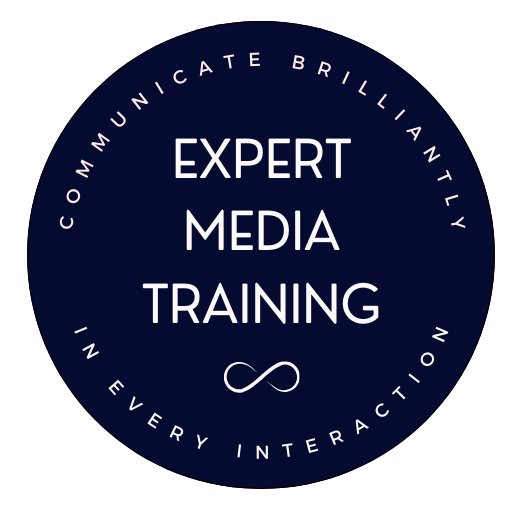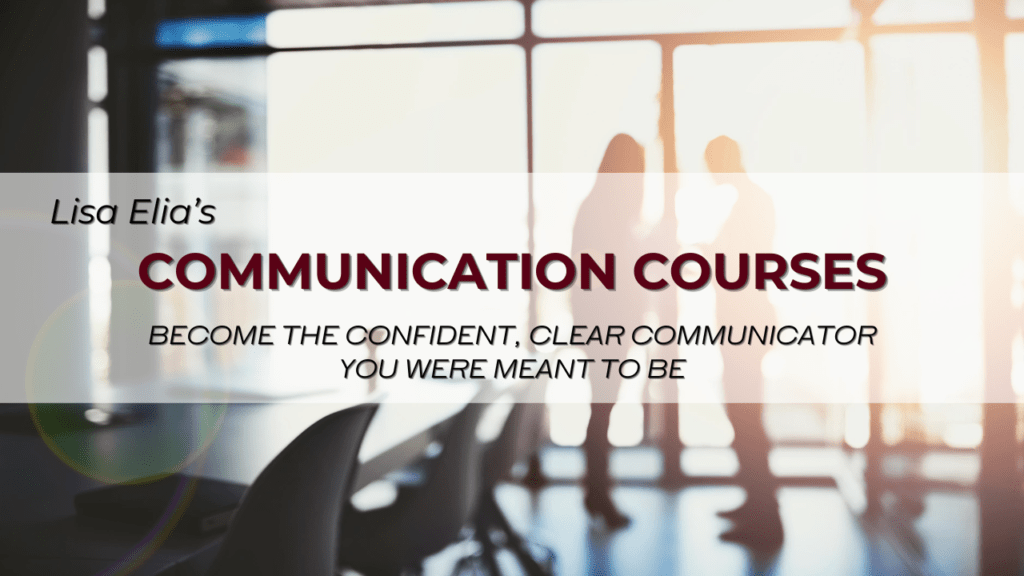
Friday, June 20, 2014 | Communication, Media Interview Tips, Messaging, Presentation Training
When I see women posting videos and announcing that they’re not wearing any make-up because they want to be authentic, I feel that is inauthentic. The presence or absence of cosmetics is not what determines the authenticity of one’s message; the truthfulness and honesty of the message is what makes it authentic. Pretending you are not preparing yourself or your message is inauthentic. If you have the forethought to turn on your video camera and then post and share your video, is it really a spur-of-the-moment thought-share? Isn’t it more authentic to present yourself the way you would present yourself for the public before you turn on your video camera? Announcing that you are about to “be authentic” is also not necessary. Unless you are intimating that you are lying most of the time, shouldn’t we assume that you are being authentic and honest all of the time? Preparing your message and yourself before you make any public statement, whether it’s a Facebook post, a YouTube video or a formal speech, does not make it, nor you, inauthentic. Preparation and the refinement of your message shows that you care about what you are communicating.
Authenticity is felt immediately. It doesn’t need to be announced.
Authenticity doesn’t need to be announced in media interviews or presentations either.
In media training sessions, we coach our clients to avoid saying, “honestly,” or “I’m going to be honest with you now,” because these words and phrases can beg the question, “Were you not being honest the rest of the time that you were speaking?” People will trust you if you convey trustworthiness with your words and body language. You don’t need to ask them to trust you…unless you’ve betrayed their trust, in which case you would need more specific media training and strategy or crisis communication services. You can follow everything you’ve learned in your media training or presentation training, and still communicate the messages that will lead you to your goals or address important issues.
Communicating with authenticity means letting go of pretense.
To download our free Media Interview Guide and other tools, click here.
To check out our online courses, click here.
For a complimentary consultation to discuss private training for yourself or your team, click here.

This post was written by Lisa Elia, a media trainer, presentation trainer, pitch coach, communication expert, and speaker. She trains clients around the world for media interviews, speeches, internal and external presentations, panels, investor presentations, and promotional videos, and provides executive and team communication coaching.
With more than 25 years of experience, Lisa has prepared clients for interviews with TODAY, GMA, The Wall Street Journal, CNN, ESPN, and hundreds of other outlets. Lisa has shared her expertise with national media outlets that include Inc., Entertainment Tonight, E!, and many others. Clients include entrepreneurs, Fortune 500 companies, and everything in between as well as athletes, celebrities, and other public figures.
Tuesday, June 10, 2014 | Communication, Media Training, Presentation Training
The immediate feedback that you can receive with live media training is the best way to gain awareness of your body language, but the following tips will get you started.
Whether you’re meeting with a potential new client or a big decision maker who could change your life with a major deal, like an endorsement deal, a TV deal, or a book deal, paying attention to nonverbal communication (body language) can make or break the deal.
It is estimated that more than 90% of communication is nonverbal. People observe your nonverbal behaviors to determine whether you seem nervous, honest, confident, competent, and lots of other things.

What’s your body saying?
Here are body language do’s and don’ts for meetings:
Body Language Don’ts in Meetings:
Don’t slouch, as doing so can make you appear sloppy, uninterested or lacking in confidence.
Don’t stand with most of your weight leaning to one side, as this can make you appear less confident and less steady.
Don’t tilt your head too much, as it makes you appear unsure.
Don’t look down while you’re listening, as many people do: this could make you appear disengaged.
Don’t cross your legs and your ankles simultaneously (as some very flexible people do), as it makes you appear insecure.
Don’t cross your arms in front of you, as this can make you appear defensive.
Don’t play with your jewelry or anything else.
Don’t fidget. Watch your feet: fidgety feet are often the strongest indicator of nervousness, and a good interviewer may pick up on this.
Body Language Do’s in Meetings:
Offer your hand for a firm handshake, at the beginning and end of a meeting. If the person you are meeting has his or her hands full, or if he or she doesn’t respond, simply lower your hand.
Sit and stand with straight, but not stiff, posture. Your ears should be aligned above your shoulders.
Make eye contact with the person you’re speaking to, but don’t stare. It’s natural to look away periodically for a second or two.
Smile when you say hello and goodbye, and when you are talking about your greatest achievements.
Nod slightly in agreement when the person you are meeting with is telling you about himself or herself or the company or project, and smile when appropriate. Your body language will show your enthusiasm for the opportunity, and this is one of the things that people want to see.
Pay attention to the person’s nonverbal behavior. For example, if the person you are meeting with begins to look away or look at his or her watch while you are speaking, finish what you are saying quickly.
Before you go into your interview, roll your shoulders back and forth, take a few calming breaths and stretch your neck and body. All of these things will help to relax you, keep you out of “fight or flight” mode, and reduce the tension that can cause the shoulders to hunch and the diaphragm to be compressed. By opening and relaxing the body, you should have a stronger, steadier voice, and you should feel and appear more confident.
If you tend to fidget, simply cross your ankles.
If you want to learn more about body language and to sharpen all of your communication skills and you want a self-paced, online learning experience, explore my courses.
If you want to learn about our media training and presentation training services, click here: https://expertmediatraining.com/services
Contact us to arrange a consultation with Lisa.
Call us at 310-479-0217.

Thursday, May 29, 2014 | Business Tips, Communication, Messaging
Much is said about committing to your word in business. It’s always been important and has become increasingly so in today’s transparent world.
While most of us want to keep our word every day, we sometimes set ourselves up for failure by promising too much, too soon. When working with the media, your team, or your clients, your word is everything!
Committing to your word:
If a new project or opportunity comes along, think about whether or not you really want to do it. If you don’t, you’ll have trouble sticking with it and honoring your commitments. If you don’t light up at the thought of taking on a project, let it go and leave room and time for the things that will. My experience in my business has been that when we pass on what’s not right for us and refer those people to other firms, great new clients appear.
Once you’ve taken on a project, commit to it 100%. (Obvious, yes, but does it always happen?) Anticipate that there may be some unforeseen delays when estimating delivery times on your projects so you can provide a realistic timeframe to your clients. Even with the best intentions, things can happen that make it impossible for you to deliver on a promise or meet a deadline–natural disasters, power outages, flight delays. If you can’t keep your word to someone, explain why you can’t do so, preferably before they expect you to deliver on your promise. People are usually more understanding when they’re told what’s going on. If you’re thinking that you just don’t feel like doing something you’ve committed to, consider this:
- Would the other party be happy to change the commitment? Sometimes that person you’re supposed to meet for dinner is just as tired as you and is hoping you’ll cancel. Call and discuss it.
2. Why don’t you want to keep your commitment? Have you changed your goals? Are there other changes in your life that make it impossible to do so? Or, are you just taking the easy way out?
3. What happens if you don’t keep your commitment? Will you disappoint someone? Will you disappoint yourself?
4. How will you feel if you commit to something and really go for it, full-on? What if you do whatever it takes to meet your commitments to others and yourself? How powerful and confident would you feel then?
When you think about the commitments you make, whether or not you keep them, and how you honor them, remember that your word is really all you have. When people trust you because you’ve demonstrated that you keep your word, they will be more likely to give you money, business, referrals, friendship, and love.
Your word is like spiritual currency. Spend it wisely.
Here are a few other useful links:
Does the Way You Talk About Yourself Help or Hinder You https://expertmediatraining.com/the-way-you-talk-about-yourself/
Media Training Resources https://expertmediatraining.com/media-training-resources/
Frequently Asked Questions about Media Training https://expertmediatraining.com/faqs-about-media-training/
To download our free Media Interview Guide and other tools, click here.
To check out our online courses, click here.
For a complimentary consultation to discuss private training for yourself or your team, click here.

This post was written by Lisa Elia, a media trainer, presentation trainer, pitch coach, communication expert, and speaker. She trains clients around the world for media interviews, speeches, internal and external presentations, panels, investor presentations, and promotional videos, and provides executive and team communication coaching.
With more than 25 years of experience, Lisa has prepared clients for interviews with TODAY, GMA, The Wall Street Journal, CNN, ESPN, and hundreds of other outlets. Lisa has shared her expertise with national media outlets that include Inc., Entertainment Tonight, E!, and many others. Clients include entrepreneurs, Fortune 500 companies, and everything in between as well as athletes, celebrities, and other public figures.

Saturday, December 28, 2013 | Media Relations
Most people who are in business or who are experts, authors, or entertainers, would love to be featured in, or on, major media outlets, not only so they can spread their messages to millions of people quickly, but because large media outlets have a trusted following. This “third-party endorsement” from the trusted editors, writers, and producers at the media outlets goes a long way in building their audiences’ trust in you and providing a third-party endorsement to your potential clients or customers!
If you want to see your face or words in the media, you need to know how to present your information the way the media want to see it. The first place most media members go to check you out is your website. Then, they will immediately look for an online media page where they hope to find everything they need to determine whether or not they to include you in an upcoming broadcast or article.
Following is a list of items to include on an online media page.
If you don’t have them all, just begin with the elements you do have, and continue to add components as you develop them.
• On your online media page, post the words “Media contact” followed by the name, email address, and phone number of the person who will handle calls and inquiries from the media on your behalf. It’s okay if it’s you.
Do not skip the phone number or email address here. Members of the media do not like to fill out online forms, and they frequently need to reach potential guests quickly. If they can’t call you, they may move on to someone who is more accessible.
• Include your biography and/or company backgrounder on your media page.
If you are an expert, you might only have a biography. If you have a company that exists beyond yourself, you might also have a company backgrounder.
• Your video reel or videos of you speaking should be near the top of your media page.
If you have not yet been interviewed on TV, you can include other videos of yourself speaking, to give the media an idea of how you come across. Be sure the quality is good and that you are talking about topics that are relevant to the way you are positioning yourself.
If you don’t have any videos yet and you have not obtained any prior media training, a few media training sessions with a seasoned media trainer will boost your clarity, confidence, and poise on camera. Just a couple of media training sessions can help you to capture the attention of television producers with your videos.
For experts or people who want to do a lot of demonstrations in the media, include video segments of you providing tips or information or doing demonstrations. If you can make these segments downloadable from your media page for news producers to capture and include in news segments, you’ll have an advantage over your competition.
Be sure your video content is viewable on your website and on your media page: don’t use links that will lead people away from your site and onto YouTube, Vimeo, or elsewhere. If your videos are hosted on YouTube or Vimeo, you can create a playlist and embed it onto your website. This would allow members of the media to watch several videos of you, within one small frame on your page. I use Vimeo Plus so that I can have my videos on my site, without the Vimeo logo and without other people’s videos being shown following mine, as YouTube videos often do.
• An audio reel or links to audio interviews can also be included on your media page.
If you have not yet been interviewed on the radio, but decide to include other audio recordings, such as those from teleseminars, only include top-quality content. You may want to edit it to capture only the best parts of each teleseminar.
• On your media page, post a list of topics you can discuss, and story or segment ideas.
Conduct some research to determine what has already been covered extensively in the media, and then think of some topics that are compelling.
To get a sense of how to write your list of topics, look at media outlets’ websites, the covers of magazines, and other print media, and pay attention to the way guests are announced on the TV and radio shows where you would like to be featured. One of the topics or segment ideas on your list may be the very reason a member of the media decides to create a TV segment or article featuring you.
• Include links to press releases, news clippings, and articles you have authored on your media page.
If you include links to the media outlets’ sites, check them frequently: many media outlets regularly move content on their sites.
• Create interesting fact sheets for your media page.
To increase your chances of gaining media coverage include a fact sheet(s) on your media page that includes background information on topics related to your area of expertise, relevant facts and statistics from universities and research institutes, and professional associations. Be sure to use reputable sources, such as top universities or institutions, for the data you include in your fact sheets, and be sure to credit all sources. It is good to include a link to the source of the information, so a member of the press who wants to quickly verify it can do so.
•If your work includes creating transformations of any kind, whether you transform environments or people, include before-and-after images in your downloadable photo gallery. Just make sure you have the right to publish all the photos you use.
• Authors should include a link to a book one-sheet on their media pages.
This document usually contains a one- to two-paragraph description of your book with bullet points of the major topics covered in the book, top reviews for the book, a photo of the book cover, a photo of yourself, and a brief paragraph about you (approximately one or two paragraphs). Include the publishing information, ISBN number, price, publishing date, and stores or sites where the book is available.
• Testimonials can be included on your media page but be sure to only include those that don’t sound too salesy.
Put the most important elements above the fold, including your “media contact” information, video(s) of you, a photo of you, and at least a few sentences of your biography. For those who don’t know what “above the fold” means, it’s an expression that refers to a folded newspaper: the most important news was usually placed “above the fold”. On a web page, “above the fold” generally refers to whatever is visible before someone scrolls down.
The more you present yourself and your offerings in a professional, organized, and accessible manner, the more likely you will be to capture the attention of the media and keep them coming back to you.
Here are more links that you may find helpful.
For a Media Interview Checklist to keep on hand, click here.
This Glossary of Media Interview Terms will also be useful: https://expertmediatraining.com/media-interview-terms-from-los-angeles-media-trainer
Prepare for TV Interviews BEFORE You Book One. Click here to read this post.
To download our free Media Interview Guide and other tools, click here.
To check out our online courses, click here.
For a complimentary consultation to discuss private training for yourself or your team, click here.

This post was written by Lisa Elia, a media trainer, presentation trainer, pitch coach, communication expert, and speaker. She trains clients around the world for media interviews, speeches, internal and external presentations, panels, investor presentations, and promotional videos, and provides executive and team communication coaching.
With more than 25 years of experience, Lisa has prepared clients for interviews with TODAY, GMA, The Wall Street Journal, CNN, ESPN, and hundreds of other outlets. Lisa has shared her expertise with national media outlets that include Inc., Entertainment Tonight, E!, and many others. Clients include entrepreneurs, Fortune 500 companies, and everything in between as well as athletes, celebrities, and other public figures.
Thursday, October 24, 2013 | Branding
Branding is a hot topic in business and in media training and presentation training.
 The brand has grown to extend far beyond its origins, when a brand was the insignia used primarily to mark cattle and products that craftspeople made.
The brand has grown to extend far beyond its origins, when a brand was the insignia used primarily to mark cattle and products that craftspeople made.
True branding extends far beyond logos and the colors and fonts and design elements you use on your website, social media pages and products, although these are very important. People respond to a good brand in a visceral, emotional way. When you receive media training, your trainer should help your personal brand to come through.
A focus on your brand in media interviews is a part of any good media training session.
The brand of your company or organization, and/or you as a person, should be clear and come across every time you give an interview or make a presentation.
Because evolved people don’t live by pictures alone, the “language of your brand” is just as important as the visual elements, and sometimes even more so. Yet, most people don’t give nearly as much thought to the language of their brand as they do the visual elements.
What is the language of your brand in media interviews?
Quite often, people will experience your brand solely through words. When people talk about you, your company, or your services or products, they will use words. A print interview that you give will rely solely on the words that you speak.
The words people choose to describe you will come partly from the experience they have had with you and partly from the very words you have said or written.
In your media training sessions and message development sessions, focusing on the language of your brand in interviews will give you a great sense of clarity before your interviews.
Any time you speak about yourself or your company, even in something as seemingly mundane as a quick phone call or a one-on-one meeting, you’re conveying your brand. Of course, when you speak from a stage or through social media or traditional media (e.g., TV, radio or print interviews), you’re transmitting your brand to masses of people simultaneously, but you can still do it in a way that feels personal.
The language of your brand goes far beyond having a good elevator pitch or introductory phrase that you and your team use when you meet people. It’s also much more than a list of descriptions that you or your staff read off of a page when explaining what you do.
What are the words, phrases and explanations that you and your entire team use to convey your brand in media interviews and in every interaction, from the way your phone is answered and problems are handled, to the way you interact with people at functions when you think no one is watching, to the way you interact with your staff or your team members?
What are the words or phrases you will use that will stick in people’s heads and reach their hearts?
Your brand in media interviews is conveyed in everything you do before, during, and after the interview.
Friday, October 18, 2013 | Communication, Media Training, Public Speaking
The use of acronyms and abbreviations seems to have increased significantly over the past decade, primarily due to the growth of texting and the shrinking of sentences to fit within Twitter’s character limits.
The use of acronyms and abbreviations in media interviews or speeches can often create confusion, turn people off and, possibly, make you appear less eloquent than you are.
The difference between acronyms and abbreviations:
An acronym is pronounced like a word and is generally comprised of the first letter of each word in a phrase. Example: SWOT (which stands for “strengths, weaknesses, opportunities, threats”).
An abbreviation consists of the first letter of each word in a phrase or name, but each letter is pronounced individually. Example: D.I.Y. (which stands for “do it yourself”).
Of course, the above acronym and abbreviation could each have other meanings, but these are among the most common meanings for them. This brings me to the first of my tips for using acronyms and abbreviations effectively in media interviews or speeches:
1. Avoid using acronyms or abbreviations that could easily be confused with more commonly known ones. For example, if my team and I referred to our company as “E.M.T.”, rather than Expert Media Training™, a large percentage of people would be confused because “E.M.T.” is commonly used to describe an “emergency medical technician”. The difference is vast: if there’s a speech emergency I can help you, but you probably don’t want me intubating you.
2. Avoid using abbreviations or acronyms that may not be known to the majority of your audience. If you are in a media interview or giving a speech that will last more than a few minutes, and you plan on using an abbreviation to refer to something with a long name, explain this the first time you mention the full name associated with the abbreviation. This should be practiced during your media training, so you become fluid with your delivery.
3. If you can create an acronym for a system you have created or something else you want people to remember, this can be very useful for marketing and for making you memorable. If you plan to use the acronym in a media interview or speech, explain what it means early on.
4. In broadcast interviews or speeches, don’t use abbreviations that contain more syllables than the words themselves. Example: using “G.W.P.” (5 syllables) instead of “gift with purchase” (4 syllables). You could probably get away with this in an article you author, but this kind of “marketing speak” rarely impresses people.
5. If, during an interview or speech, you use abbreviations that are replacements for slang expressions, like “LOL” or “OMG”, know that this will convey a certain image of you. If you use these facetiously, it will shape your image in a different way.
6. If you use too many acronyms or abbreviations throughout your interview or speech, people may think you spend too much time texting and not enough time working…unless you work in social media, perhaps.
7. Choose your acronyms and abbreviations as consciously as you would other words and phrases, and you should be fine. I was tempted to use a lot of acronyms here, but I didn’t want you to TIWAJ. (I’ll let your imagination work on what TIWAJ could mean.)
For more media training and presentation training tips provided by Media Trainer Lisa Elia, the founder of Expert Media Training™, visit https://expertmediatraining.com/blog
Monday, September 16, 2013 | Business Tips, Messaging
 “Present yourself as vital and ever evolving, and people will be magnetized to you.”
“Present yourself as vital and ever evolving, and people will be magnetized to you.”
When I wrote these words, I was in deep thought about the qualities and actions that attract people, in preparation for the free teleseminar that I held last year.
When people show that they are continuously evolving, they capture the attention of others. Businesses are the same because, after all, businesses are the creations of people.
Vital. Here’s why you want to be vital. These definitions came from Dictionary.com:
- “of or pertaining to life.
- having remarkable energy, liveliness, or force of personality.
- being the seat or source of life.
- necessary to life.
- necessary to the existence, continuance, or well-being of something; indispensable; essential.”
Who wouldn’t want even one of these descriptions to suit them?
Here’s some quick “thinkwork” you can do.
Think of at least one way that you — or your business, or your music or art or books — can be seen as “vital” to your customers, clients or fans.
Consider how you can continue to evolve and to let others know about it. People want to see what’s coming next. Entice them, lead them, excite them.
Thursday, September 5, 2013 | Communication
 We hear so much about authenticity and transparency and accountability. All of these are felt by others through our communication. What it really comes down to is maturity.
We hear so much about authenticity and transparency and accountability. All of these are felt by others through our communication. What it really comes down to is maturity.
Communicating with maturity is very simple.
Here are some tips on how to communicate with maturity:
It includes taking responsibility for one’s actions and for the promises one makes, and communicating clearly when you cannot deliver on your promises due to extenuating circumstances.
Communicating with maturity is communicating with thoughtfulness and the knowledge that there are consequences that come when certain words are spoken.
Communicating with maturity results in fewer disagreements and less drama in life.
Communicating with maturity requires strength, clarity, and self-knowledge, and it is the most freeing way to communicate.
For additional communication tips, check out my Confident and Clear Communication program.

Wednesday, April 24, 2013 | Media Relations, On-camera, Video
Wednesday, April 10, 2013 | Interview Skills, Media Training

I was on Entertainment Tonight recently, sharing my PR and media training expertise.
This was my fourth segment with ET, and the show producers had called me two other times when I wasn’t able to tape the segments due to scheduling conflicts. However, I believe that one of the reasons the producers have called me so much is that I’m easy to work with.
As a media trainer, I offer you these tips to prepare for TV interviews:
1. If you are positioning yourself as an expert, stay up on research, trends and news related to your field and think about how to articulate various aspects of your work so that you can easily answer questions about it. If you have not had media training yet, do not wait until the day before you have an interview. Get it as soon as you begin to think about putting yourself into the public eye so that you have time to work with your media trainer on creating clear responses to questions and on polishing your delivery.
2. Have your preparation ritual down, so that you can center yourself and get your energy up with very little notice. Quite often, you will receive requests for interviews that must take place within hours, or sometimes minutes. Having a good preparation ritual that you use to get in performance mode can give you the confidence to say “yes” to great opportunities, even when you are very busy.
Preparation rituals are included in all of our programs. When we have provided media training for actors or music artists, we have observed that they love our techniques, because they are based in acting training and movement training.
When we provide media training for athletes, they too appreciate the use of a quick preparation ritual, as most of them use them in their professional work.
3. Knowing that many media interviews come up very quickly (sometimes with less than 24 hours’ notice), have your wardrobe ready to go, have your hair cut and colored the way you want it, nails manicured, etc., at all times. This is the life of a public figure, which is what you become if you put yourself out into the public eye as an expert.
4. Try to accommodate last-minute media requests, if you can. If you say “no”, someone else will say “yes”.
Suze Orman skyrocketed into the public spotlight because she told the producers of The Oprah Winfrey Show that she could be an emergency guest. They asked her to fly in and sit in the front row so they could ask her a question: she answered it so much to Oprah’s liking that Oprah asked her back, and rest is history.
You can watch my interviews on Entertainment Tonight and learn more about the media interviews that have arisen for me as a media trainer and PR expert at https://expertmediatraining.com/press-room/.
To further prepare for TV interviews, use the quick list of items to have ready to go, which you can find on this blog post:
Here are some other links you may find useful in preparing for media interviews:
Media Training Resources
https://expertmediatraining.com/media-training-resources/
Top 10 Media Relations Tips – Media Training Tips
https://expertmediatraining.com/media-training-tips-for-good-media-relations/
Frequently Asked Questions about Media Training
https://expertmediatraining.com/faqs-about-media-training/






 The brand has grown to extend far beyond its origins, when a brand was the insignia used primarily to mark cattle and products that craftspeople made.
The brand has grown to extend far beyond its origins, when a brand was the insignia used primarily to mark cattle and products that craftspeople made. “Present yourself as vital and ever evolving, and people will be magnetized to you.”
“Present yourself as vital and ever evolving, and people will be magnetized to you.” We hear so much about authenticity and transparency and accountability. All of these are felt by others through our communication. What it really comes down to is maturity.
We hear so much about authenticity and transparency and accountability. All of these are felt by others through our communication. What it really comes down to is maturity.


